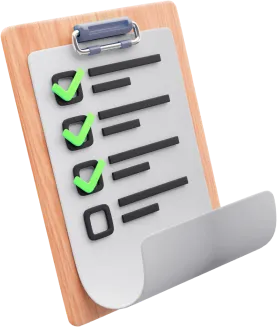Residential property management: essential strategies

A comprehensive knowledge of property management and the local real estate industry improves the operational efficiency of residential property from the first touchpoint.
Residential property management is a multifaceted industry that demands an array of skills. It involves overseeing and managing real estate properties, from individual homes to large apartment complexes. We’ve broken down the complex industry into a full guide covering the entire property management scope.
If you are a property manager or homeowner looking for the right solution for your property, you might be curious about what methods can help your home rent out successfully.
We’ll share some of our essential strategies for managing residential properties effectively.
Key residential property management methods
The role of a residential property manager transcends just collecting rent from tenants. It covers diverse areas, including property maintenance, tenant relationships, legal compliance, and financial management.
Property maintenance
One of the core responsibilities in managing residential properties is maintaining the physical condition of the property. This involves routine inspections to identify any repair or maintenance needs, timely addressing of those needs, and ensuring the property is clean and safe for occupants. Regular maintenance keeps the property in good shape and helps prevent expensive, extensive repairs down the line.
See the ten basic features all renters expect to see in a rental property.
Tenant relationships
Building a good relationship with tenants is critical to reducing turnover and maintaining high occupancy rates. This involves clear communication of expectations, prompt response to complaints or inquiries, and a respectful, professional demeanor. Tenant satisfaction is a key driver in determining the success of a residential property management effort.
Legal compliance
Understanding and adhering to the laws that regulate residential property management is crucial. This includes compliance with any local and state laws regarding security deposits, eviction procedures, property safety standards, and more. Failure to comply with these laws can result in hefty penalties and damage the property's reputation.
Financial management
Managing a residential property also entails overseeing its financial performance. This involves setting appropriate rental rates, ensuring prompt rent collection, budgeting for property maintenance, and keeping detailed financial records. Regular financial reviews allow for necessary adjustments and help optimize the property’s revenue.
Get familiar with some of the most common property management terms and fees.
Implementing effective residential property management strategies
Once the scope of residential property management is understood, it’s time to focus on smart strategies that enhance your effectiveness as a property manager.
Technology integration
Leveraging technology can greatly streamline property management processes. Property management software can automate tasks like rent collection, maintenance requests, and tenant communication, making these processes more efficient and reliable.
Tenant screening
Implement a thorough tenant screening process. This should include checking credit reports, employment status, references, and past rental history. A good tenant is more likely to pay rent on time, take care of the property, and stay longer, all of which contribute to the stability and profitability of your property.
Regular training and education
Keeping up with the latest industry trends and regulatory changes is vital. Regular training and professional development opportunities can ensure you and your team have the necessary skills and knowledge to manage your property effectively.
Preventive maintenance
Adopt a proactive approach to maintenance rather than a reactive one. Scheduled inspections and preventive maintenance prolong the property's assets' life and enhance your tenants' living experience.
Modern and innovative property management methods
If you’ve mastered the basic methods and best practices of property management, you might want to check out some of these modern supplements and focus areas of property management in 2024 and beyond.
Smart home technology integration
Property owners are increasingly integrating smart home technology into their properties. This includes smart locks for keyless entry, smart thermostats for energy efficiency, and smart security systems for enhanced safety. This technology provides added convenience for tenants and enables property managers to remotely oversee aspects of their property.
Green initiatives
More and more property managers are implementing green initiatives to reduce their environmental footprint and cater to eco-conscious tenants. This might include installing energy-efficient appliances, incorporating solar panels, promoting recycling, or creating green spaces within the property. In addition to being eco-friendly, these initiatives can also provide cost savings in the long term.
Virtual Reality tours
Virtual reality (VR) tours are becoming increasingly popular in the age of technology and social distancing. These allow potential tenants to tour properties from the comfort of their own homes at their convenience. This saves the property manager and potential tenant time, making the rental process more efficient. See some of the other technology innovations that are transforming the property management industry.
Community building
Community building is an innovative trend where property managers organize social events and create shared spaces to foster community among residents. This could be anything from a monthly book club to a shared community garden. This improves tenant satisfaction and retention and makes the property more appealing to prospective tenants.
Personalized tenant experiences
Some property managers are going the extra mile to offer personalized experiences to their tenants. This could be as simple as a welcome gift on move-in day, regular check-ins to ensure tenant satisfaction, or customizing rental agreements to include pet-friendly policies.
Effective residential property management requires a balance of real estate market acumen, time management, interpersonal skills, legal practice, and practical expertise. It's a challenging yet rewarding field. If you’re working with a property manager instead of self-managing your residential property, finding a good fit is important. Here is our guide to selecting the right property management for your needs.
Incorporating these unique and forward-thinking strategies will not only set your residential property management approach apart from the rest but also enhance the overall value of your properties. As the industry continues to evolve, staying abreast of these trends and finding innovative ways to adapt will be crucial to success. The goal is to foster win-win relationships between the property, its management, and its occupants, creating a living environment everyone appreciates.












.jpg)





















































































.avif)
